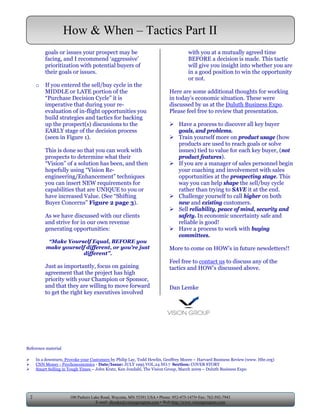Buying Decisions Are Moving Higher In Organizations How When
•
0 likes•170 views
The document provides tips on how and when to implement tactics for dealing with purchasing decisions moving higher in organizations. It recommends re-evaluating opportunities to determine their viability and focus on gaining agreement on value and priority with key decision makers. The document also suggests customizing your approach based on where prospects are in their purchasing cycle, with different tactics for early versus late stages. Accessing senior executives earlier allows influencing the process more.
1 of 3
Download to read offline


